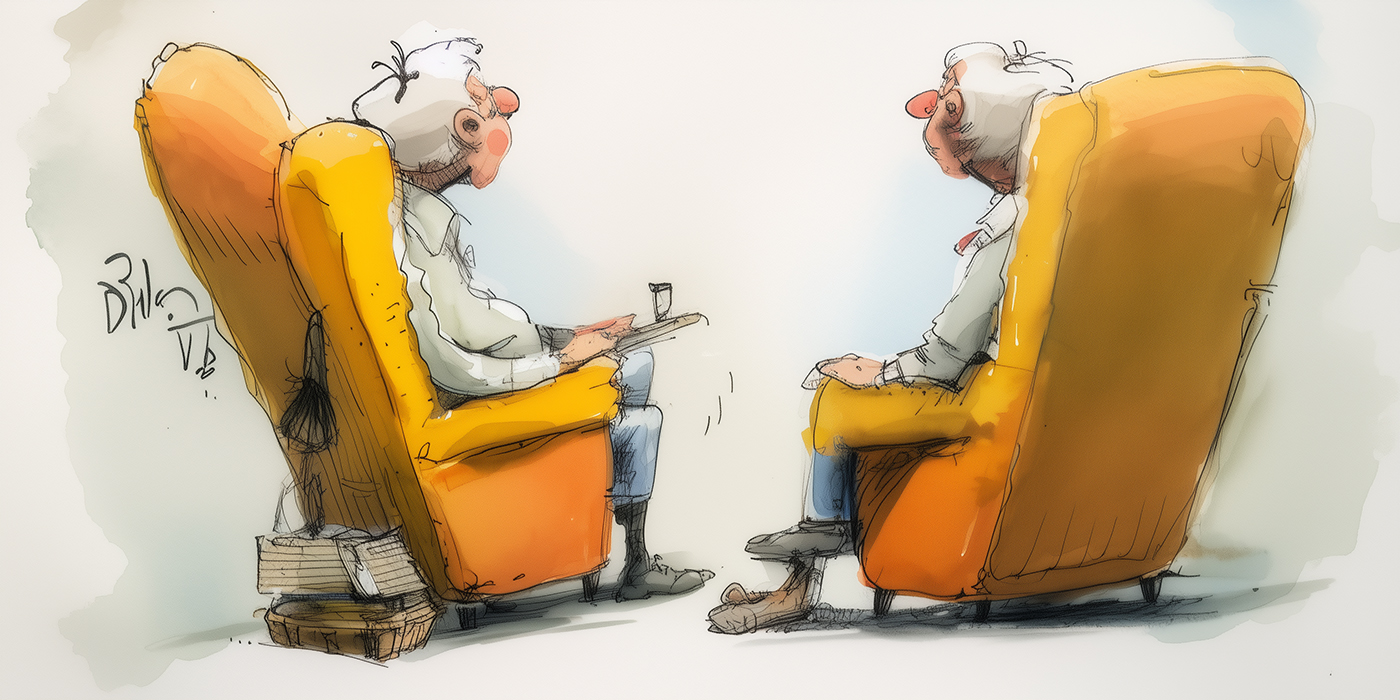As I travel to many states and countries sharing my recovery message, I’m often asked the same question: “When and how should I tell the people closest to me that I’m a member of SA?” While each situation is different, I try to pass on general principles. The suggestions I offer are based on my own experience, strength, and hope as a member with 28 years of SA sobriety. These suggestions may not work for everyone, but they have worked for me.
When I first came into SA, I was married and had four teenage children. When I went to a meeting I would casually say to my family that I was going to an SA meeting. Since then, I’ve also told my sons’ wives and eventually my grandchildren that I am involved in SA. I’ve shared with my in-laws as well as my daughter-in-laws’ parents, and I’ve shared with bosses and coworkers. I’ve spoken frankly about this issue to clergymen at my places of worship and with physicians who have treated me. Last but not least, I’ve shared my SA involvement with certain friends whom I see socially. However, when I say that I have told them about my SA involvement, I do not mean that I told them my entire story. Most often I would merely say that I had a problem with lust and that the program was helping me overcome this problem.
When I get frightened about breaking my anonymity, I remember what my sponsor would often say: “I’ve never had anyone lose respect for me for my recovery, but I surely had people lose respect for me when I was in my active disease.” Following are some principles that have worked for me in sharing my recovery with others.
1. Practice Honesty. “The old me will act out again” is an axiom I’ve heard in recovery rooms. I had to be willing to change my old ways if I expected to stay sober. The old me lived a secret, double life. I cannot continue living a double life in recovery (although I’ve seen others try to do so). Some members tend to keep their membership in SA secret from their loved ones. When they go to a meeting, they don’t even tell people close to them where they are going. If asked, they will lie about where they are going or avoid answering the question. This behavior often leads to more distrust from others.
Some members ask, “If I say I’m going to an SA meeting, won’t they then ask me why I need such a meeting?” Perhaps they will, but my experience is they don’t. If they do ask, I have some suggestions in the following sections regarding what to say.
2. Let Go of the Shame. I’ve accepted Step One in my life, which means that I acknowledge I have an illness. I’ve accepted myself as a sick man who’s getting well. Without this acceptance, my only explanation for attempting sobriety is that I’m a bad man who’s attempting to get good. But that thought brings me back to shame, and if I’m in shame, I will have trouble being happy, staying sober, and telling others that I’m in recovery. If I believe that I’m bad, I won’t be willing to tell others about the malady.
3. Tell Only the Simple Truth. My sponsor taught me the concept of “the simple truth.” He would say that addicts either lie or say too much— but in recovery, we learn how to tell the simple truth. My wife often reminds me to answer the question I’m being asked, not the question I think I’m being asked. Let me give an example.
A few years ago we took a trip to an SA International Convention in Salt Lake City. The day before the convention, we decided to tour the Mormon tabernacle area. After the tour, our guide asked, “What brings you to Salt Lake City?” I replied with the simple truth: “A conference.” “What type of conference?” he asked. I said, “A recovery conference.” He asked what type of recovery conference, and I said, “A Twelve Step conference.” He persisted: “What type of Twelve Step conference?” I continued to give him the simple truth: “I’m attending a conference of Sexaholics Anonymous.”
The guide replied joyfully, “Thank God! I have finally found someone who knows about SA. I have a friend who desperately needs help and we have not been able to find SA here in this city.” By giving this man the simple truth, I was able to carry the message to someone who needed it.
4. A Note of Caution About Disclosure. With my wife and children, I did not tell my whole SA story. I would just merely tell them where I was going when I left the house. From the beginning, I would say I was going to an SA meeting. My teenage children never asked me what that was. This was all done in a natural way. I told my wife the simple truth: that I was in SA because I had a problem with lust. This was no surprise to her!
Regarding full disclosure, I’ve heard some members say, “My therapist told me I have to tell my spouse everything.” While a therapist might suggest this type of disclosure, I have seen that full disclosure can cause irreparable harm to a marriage. I am relating this from a Twelve Step viewpoint. In our literature, we are told to not say too much, especially when we first come into the program.
In “To the Newcomer” (at the very front of the White Book) we read: “A note of caution: We suggest that newcomers to Sexaholics Anonymous not reveal their sexual past to a spouse or family member who does not already know of it without careful consideration and a period of sexual sobriety, and even then, only after prior discussion with an SA sponsor or group. Few things can so damage the possibility of healing in a family as a premature confession . . . Great caution is advised here” (SA 3).
Input from the sponsor is crucial: “The sponsor could see better than we whether we were merely trying to dump our guilt or were sincerely trying to undo the wrong and make it right” (SA 124).
The AA literature also insists on discretion, and specifically warns against telling too much: “We cannot, for example, unload a detailed account of extramarital adventuring upon the shoulders of our unsuspecting wife or husband. And even in those cases where such a matter must be discussed, let’s try to avoid harming third parties, whoever they may be. It does not lighten our burden when we recklessly make the crosses of others heavier” (12&12 86).
The Big Book also discusses this principle: “Perhaps we are mixed up with women in a fashion we wouldn’t care to have advertised… If we are sure our wife does not know, should we tell her? Not always we think… If she knows that we have been wild in a general way, should we tell her in detail? Undoubtedly we should admit our fault. She may insist on knowing all the particulars. She will want to know who the woman is and where she is. We feel we ought to say to her that we have no right to involve another person. We are sorry for what we have done and, God willing, it shall not be repeated. More than that we cannot do; we have no right to go further. Though there may be justifiable exceptions, and though we wish to lay down no rule of any sort, we have often found this the best course to take” (AA 80-81).
When the time came for me to tell my family the reason I am in SA, I read “The Problem” from the SA Brochure to them. I gave the brochure to anyone who wanted one. One day when my 35-year-old son came to visit with his girlfriend, he asked me why I am in SA, and I offered him the brochure. He responded, “I don’t want you to read the brochure to me; I want to know your story.” His girlfriend was present at the time. I asked whether he was sure he wanted me to say this in front of her. He said yes. I was frightened. I did not know what to say! Then I prayed and asked God to speak for me. Out of my mouth came my qualifier that I say at the beginning of meetings: “I’m Harvey, a sexaholic, and my disease took the form of compulsive sex with self, abusive sex with my wife, and promiscuity, predominately gay.”
There was a deafening silence. You could have heard a pin drop. Then I asked, “Do you have any other questions?” All of a sudden this grown man began to cry. He said, “Dad, I want to tell you how proud of you I am for what you are now doing with your life.” As the Big Book says, “The alcoholic’s past thus becomes the principal asset of the family and frequently it is almost the only one!” (124)
I believe that for those of us who are really willing and wanting to live a sober life, the God of our understanding will give us the strength to break free from the double life. Tell the simple truth to your loved ones when it is appropriate. And when you plan to share with your family, check with your sponsor first. Ask at meetings how others have done it. Experience the freedom of letting go of shame and standing tall in sobriety. Then we can all “lift our heads, look the world in the eye, and stand free” (AA 164).
Harvey A., Nashville, TN






